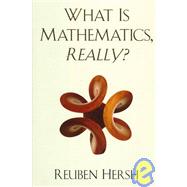
Note: Supplemental materials are not guaranteed with Rental or Used book purchases.
Purchase Benefits
| Preface: Aims and Goals Outline of Part One. The deplorable state of philosophy of mathematics. A parallel between the Kuhn-Popper revolution in philosophy of science and the present situation in philosophy of mathematics. Relevance for mathematics education. | xi | (6) | |||
| Acknowledgments | xvii | (4) | |||
| Dialogue with Laura | xxi | ||||
| Part One | 3 | (88) | |||
|
3 | (21) | |||
|
24 | (11) | |||
|
35 | (13) | |||
|
48 | (24) | |||
|
72 | (19) | |||
| Part Two | 91 | (144) | |||
|
91 | (28) | |||
|
119 | (18) | |||
|
137 | (28) | |||
|
165 | (17) | |||
|
182 | (16) | |||
|
198 | (22) | |||
|
220 | (15) | |||
| Summary and Recapitulation | 235 | (14) | |||
|
235 | (14) | |||
| Mathematical Notes/Comments Mathematical issues from chapters 1-13. A simple account of square circles. A complete minicourse in calculus. Boolos's three-page proof of Godel's Incompleteness Theorem. | 249 | (68) | |||
| Bibliography | 317 | (18) | |||
| Index | 335 |
The New copy of this book will include any supplemental materials advertised. Please check the title of the book to determine if it should include any access cards, study guides, lab manuals, CDs, etc.
The Used, Rental and eBook copies of this book are not guaranteed to include any supplemental materials. Typically, only the book itself is included. This is true even if the title states it includes any access cards, study guides, lab manuals, CDs, etc.